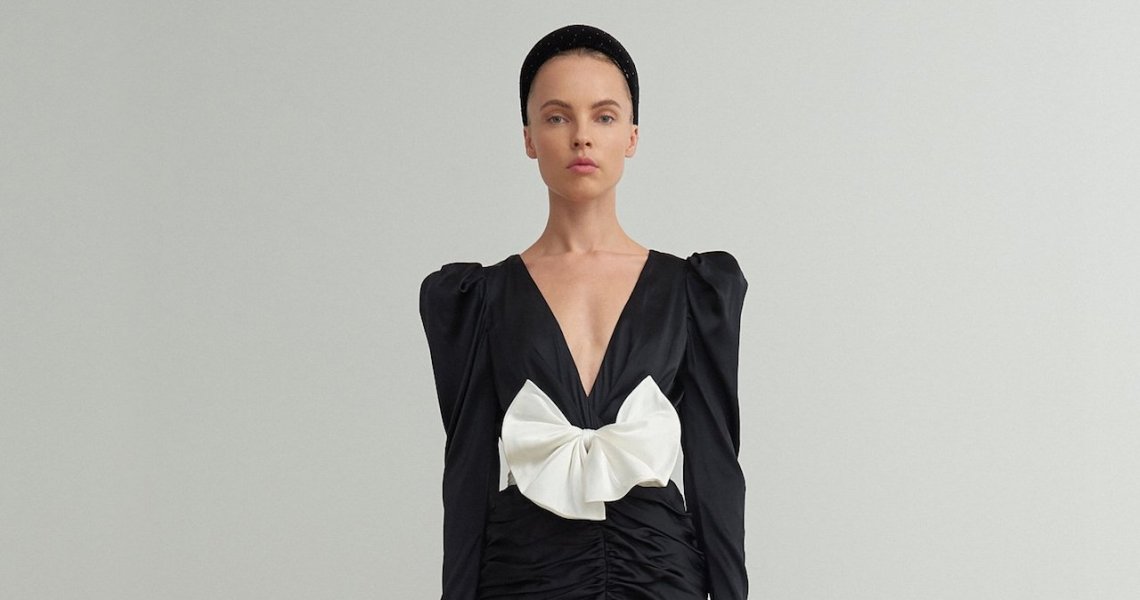Social butterflies are being forced to sit out for much of 2020, and their go-to fashion retailers are adjusting their product assortments accordingly.
“We’ve been shifting our buys to cater to a more casual lifestyle, versus the night and evening lifestyle that we were known for,” said Alexandra Willinger, buying director at Intermix. “It’s a bit of a heavy rock to push, but it’s a different landscape now. We’ll, for sure, be leaning into casual [styles] for the foreseeable future.”
It’s a big pivot for the retailer. In late June of 2019, Willinger sang a different tune: “We’re definitely events-driven,” she said, calling the Intermix customer “fabulous,” “going places” and “very social.”
“She comes to [Intermix] because she needs something for that weekend or that night,” she said at the time. “So we lean into that and make sure that we’re servicing her for all of her fabulous events.”
As retailers become more thoughtful about how they’re using their resources, they’re increasingly moving away from cocktail dresses and party tops — distancing themselves from a special-occasion category that’s, at least temporarily, dead in the water. Early this month, a Harris Poll showed that Americans are largely in no rush to go out, despite restaurants opening and lockdown orders lifting — and it’s no telling if and when comfort levels will change.
Last year, editorial imagery on Intermix.com and in the company’s emails focused on, for example, “telling her what to wear when she goes to Capri or to the Hamptons,” said Willinger. The company wasn’t considering offering streetwear as “our girl is a bit fancier than that,” preferring a “beautiful cashmere sweater versus a sweatshirt.”
Now, the company has nine sweatshirts on its site and a selection of sweatpants labeled as joggers. Recent emails inspire “road trip style” and feature subject lines like, “We can’t keep these sneakers in stock,” pointing to a style by Golden Goose.
Ad position: web_incontent_pos1
“For the pieces that are really for events — vacations, dates, parties, weddings, benefits — and also really sexy, night-out clothes, [sales] have literally come to a standstill,” said Jyothi Rao, president of Intermix. Online sales typically account for one-third of the business, but they’re set to account for 50% in 2020.
Revolve — known for its presence at buzzy events like Coachella, for which it dresses an array of influencers — has also adjusted its assortment. In May, the company reported that net sales for April fell 40% year over year, blamed on the cancellation of festivals. It also reported a transition in customer behavior, from buying Instagram-ready outfits to shopping “at home” categories.
“We’ve added more casual pieces and adapted our category mix to ensure that we are covering all aspects of the customer’s life,” said Lauren Yerkes, vp of buying and merchandising at Revolve. Since March, she said, the company has launched categories where it’s seen growth, including loungewear, casual dresses, sneakers and intimates, the latter of which was driven by sales of pajamas and robes.
Moving into fall, Yerkes plans to expand on those categories and, across the board, focus on comfortable pieces that can be dressed up or down.
When it comes to traditional going-out wear, shoppers just aren’t interested. According to Lyst’s quarterly The Lyst Index for the second quarter of 2020, released Wednesday, the “hottest women’s product” — based on search data, sales and social media engagement — was a style of Birkenstocks. They’re the only shoes listed in the top 10 products, and the only handbag is a tote. Comparatively, in Lyst’s report for the second quarter of 2019, the top-10 women’s products included two structured handbags, a clutch and a pair of strappy heels.
Ad position: web_incontent_pos2
Ronny Kobo, a brand known for its party dresses featuring leg slits and statement sleeves, has felt the shift.
“Since [my] brand is primarily known for its night-out looks, there was a halt in sales in early spring and overall confusion as to where to wear our looks,” said Kobo. To aid the situation, she enlisted friends of the brand, like fashion industry vet Jenné Newton-Haydon (153,000 followers), to post on Instagram images of how they’re wearing the products in the new normal — for example, with flats versus heels.
Now, the brand has been molded to the current times. For example, Kobo’s introduced a knit category and relaxed styles, and has swapped sequins for more casual, versatile fabrics.
Along with featuring more relevant products across its marketing, since March, Intermix has also altered its tone to fit the current sentiment.
“It didn’t seem right anymore to be out there saying, ‘Hey, let’s have fun and go out, and buy this cute top,” said Rao. “We had to tone all that down, not be too frivolous and start talking about some real things,” including how the company is supporting diversity.
The party may be over, but business must go on. For its part, Rao said beginning in August, Intermix will be supporting its current product direction by heavily investing in content creation and marketing — it’s an opportunity she owed to the company’s backing from Gap Inc. In June, Gap reported a 43% year-over-year drop in first-quarter revenue. “You need to force yourself to normalize the business, if you want normalized results.”
As brands and retailers shift gears toward the same comfortable, casual styles, there is risk that fashion will wind up void of style. But Kobo said she has no plans to dismiss her signature aesthetic altogether. “We’re making sure that every item is less ‘trend’ and more of a staple, but we’ve been maintaining the ‘sexy’ for our girl,” she said.




